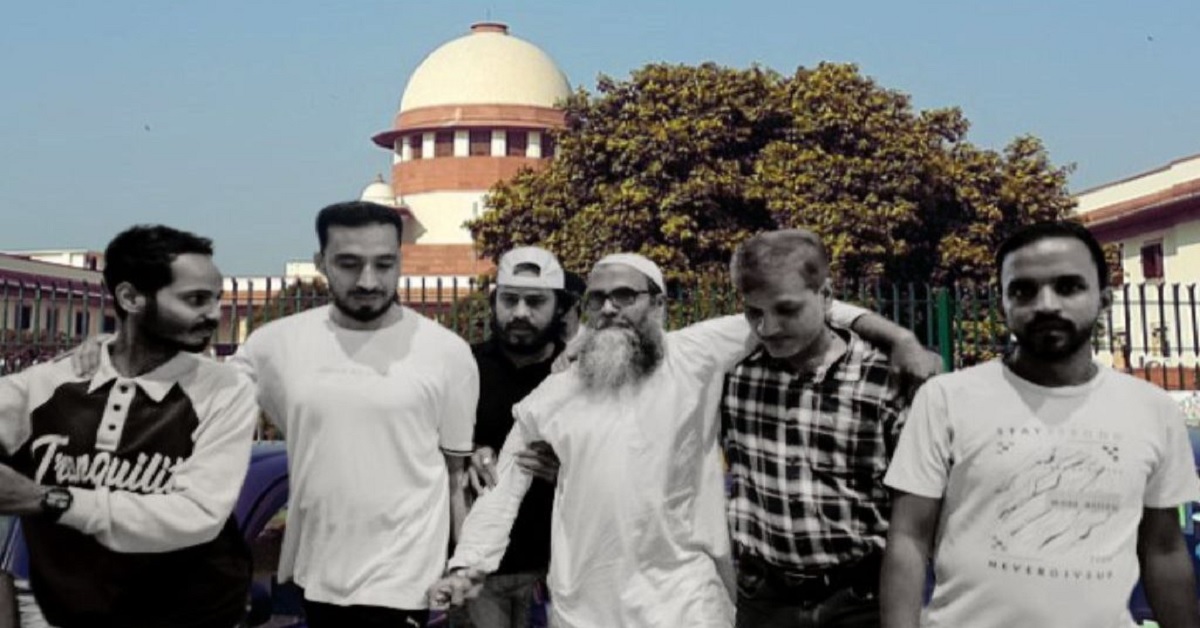Mumbai: Three days after the Bombay high court acquitted all 12 men earlier convicted in the July 11, 2006 Mumbai serial train blast case, the Supreme Court today, July 24, ordered a stay on the judgement of the high court order only to the extent that it won’t be treated as a precedent in other Maharashtra Control of Organised Crime Act (MCOCA) matters. Contrary to media reports, this means that the Supreme Court has not interfered with the high court’s finding that the men are innocent.
The stay was issued following the argument advanced by Solicitor General of India Tushar Mehta, appearing on the behalf of Maharashtra, that some parts in the high court order would have an impact on other pending MCOCA matters. MCOCA 1999 is a law that has, over the years since its enactment come up for several judicial indictments on its abuse.
Eleven of the defendants who are living (one of them passed away during the Cobid-19 pandemic, in 2021 while in jail) were released on July 21, as soon as the high court pronounced the judgement. Maharashtra chief minister Devendra Fadnavis, responding to the judgment, had said that it was “shocking” and within a day, the appeal before the apex court was filed. Two are still pending release in other minor cases.
In his arguments, Mehta told the Supreme Court bench comprising Justice M.M. Sundresh and Justice N.K. Singh that he was not asking that the defendants be sent back to jail but that the judgment be stayed. The court first said that the judgement can’t be used as a “precedent” in other matters. But when Mehta further pressed for staying the order, Justice Sundresh said, “Order stayed to that extent”.
The court observed in the order: “We have been informed that all the respondents have been released and there is no question of bringing them back to the prison. However, taking note of the submission made by the SG (Mehta) on the question of law, we are inclined to hold that the impugned judgment shall not be treated as a precedent. To that extent, there is a stay of the impugned judgment.”
The acquittal came after 19 long years of incarceration. In 2015, the special MCOCA court had convicted 12 persons for their alleged role in the serial train blast case that had killed 189 persons and severely injured over 400 persons. Among those acquitted by the high court, five persons – Kamal Ansari, Mohammad Faisal Ataur Rahman Shaikh, Ehtesham Qutubuddin Siddiqui, Naveed Hussain Khan and Asif Khan – were awarded the death penalty by the MCOCA court.
Seven others who were sentenced to life (unto death) by the MCOCA court are Tanveer Ahmed Mohammed Ibrahim Ansari, Mohammed Majid Mohammed Shafi, Shaikh Mohammed Ali Alam Shaikh, Mohammed Sajid Margub Ansari, Muzammil Ataur Rahman Shaikh, Suhail Mehmood Shaikh and Zameer Ahmed Latiur Rehman Shaikh. Kamal Ansari died in 2021.
One person, Abdul Wahid Shaikh, who was also arrested along with the 12 men, and after nine years of incarceration, was finally acquitted by the MCOCA court in 2015. The state government had not filed an appeal against his acquittal at the time.
Today, during the hearing, the Supreme Court asked if any of those acquitted were Pakistani nationals. “You mention in your appeal that there are Pakistani accused in this case,” the court inquired. To this, special public prosecutor Raja Thakare, who handled the trial in the lower court, said the Pakistani nationals are shown as absconding accused in the case and the 12 acquitted men were all Indians.
The implications of the stay of the High Court order are significant. As stated above, the SC has not stayed the release of those wrongfully convicted (except two they were released day before yesterday). What has happened and this does set another precedent is that Bombay HC’s scathing observations on the (mis)use of MCOCA, procedural lapses etc., has been stayed and the 671 page judgement passed by one constitutional court, after 75 days of rigorous hearings, has been stayed. The scathing findings by the high court in the judgement on the misuse of the MCOCA law cannot be used as a precedent in other cases. The question of law in the matter may come up at any future date, even after years, given the pendency of the cases in the apex court.
Related:
Still Waiting in Grief: How the 2006 Mumbai train blast victims were denied closure and justice

